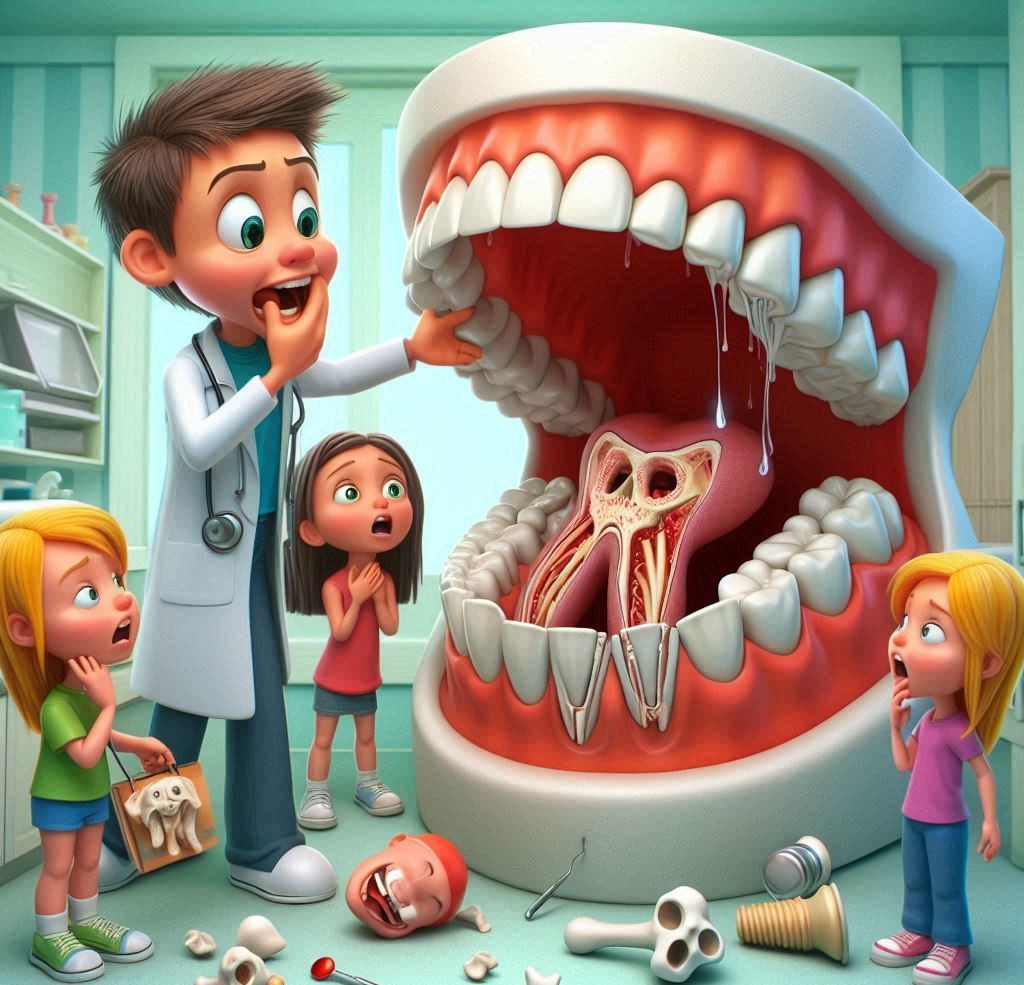Fasting has been practiced for centuries, with roots in religious rituals, health regimes, and even survival tactics. While fasting is traditionally linked to physical benefits like weight loss, metabolic improvements, and cellular repair, recent research has highlighted its psychological advantages as well. These benefits extend beyond cognitive enhancement and stress reduction to affect a surprisingly important area of daily life: oral health.
Oral health is not only a matter of physical well-being but also has deep connections to emotional and psychological health. A healthy mouth is often equated with a healthy mind, influencing self-esteem, confidence, and overall mental wellness. Interestingly, fasting can positively impact oral health habits and oral hygiene behaviors. As individuals engage in fasting practices, they often report greater awareness of their eating habits, a reduction in unhealthy food choices, and a more disciplined approach to self-care, including oral hygiene.
The intersection between fasting and oral health is an emerging field of interest, with limited yet growing research exploring the psychological effects fasting has on oral care. This article delves into the psychological mechanisms that explain why fasting can lead to better oral health habits and presents practical advice on how fasting can be safely integrated with daily oral care routines.
1. Understanding Fasting – Types and Mechanisms
Intermittent Fasting (IF)
Intermittent fasting (IF) is one of the most popular and widely studied forms of fasting. It involves alternating cycles of eating and fasting, usually with periods of eating restricted to certain windows during the day. The most common forms of intermittent fasting include the 16/8 method (fasting for 16 hours, eating during an 8-hour window), the 5:2 method (eating normally five days a week and significantly reducing calorie intake on two non-consecutive days), and alternate-day fasting.
Studies have shown that intermittent fasting can lead to improved metabolic health, better weight management, and reduced inflammation—each of which can have secondary benefits for oral health. Research has also suggested that intermittent fasting may boost cognitive function and contribute to psychological well-being, which in turn can influence an individual’s ability to maintain good oral health habits.
Extended Fasting
Extended fasting typically involves fasting for periods of 24 hours or more, with some practices extending for several days. This type of fasting is often more challenging but has been shown to activate autophagy, a cellular repair process that can rejuvenate the body and potentially improve overall health outcomes.
The psychological effects of extended fasting can include enhanced mental clarity, increased resilience, and improved mood regulation. While there are fewer studies linking extended fasting specifically to oral health, the general improvements in mental well-being and discipline observed during extended fasts suggest that it may also have a positive effect on individuals’ oral hygiene practices.
Time-Restricted Eating
Time-restricted eating (TRE) is a variation of intermittent fasting in which individuals limit their eating to specific time blocks, typically ranging from 6 to 12 hours. Unlike traditional intermittent fasting, which focuses on calorie intake on specific days, TRE focuses on aligning eating patterns with circadian rhythms. Research has shown that time-restricted eating can have several health benefits, including improved sleep, better insulin sensitivity, and reduced risk of chronic diseases.
Mechanisms Behind Fasting’s Effect on the Body and Mind
The psychological effects of fasting are closely tied to changes in the brain and hormonal systems. During fasting, the body shifts from using glucose for energy to utilizing fat stores. This metabolic shift triggers a release of ketones, which have been associated with improved cognitive function, mood regulation, and stress resilience. Moreover, fasting influences neurotransmitters like dopamine, which plays a critical role in motivation, reward processing, and habit formation.
2. The Psychology of Fasting
In this chapter, we’ll explore the cognitive and emotional shifts that occur during fasting and how they influence individuals’ behavior, including their oral health habits. We’ll examine how fasting improves mental clarity, reduces stress, and increases discipline, which are all factors that can enhance an individual’s ability to maintain an effective oral care routine.
Behavioral Changes Induced by Fasting
Fasting encourages individuals to be more mindful of their habits, from what they eat to how they care for their bodies. This awareness can extend to oral health, prompting people to make better choices about brushing, flossing, and avoiding harmful foods like sugar and acidic drinks.
Cognitive Function and Mental Clarity During Fasting
As the body enters a fasted state, brain activity often improves, leading to better decision-making and increased focus. With enhanced mental clarity, individuals are more likely to prioritize good oral health practices and adhere to long-term habits.
Dopamine and Hormonal Influence
The fasting process activates key hormones like ghrelin (the “hunger hormone”) and leptin (which regulates satiety), as well as neurotransmitters like serotonin and dopamine. These shifts can reduce cravings for unhealthy foods and sugar, both of which are detrimental to oral health. As individuals become more mindful of their food choices, they may also take a more disciplined approach to oral hygiene.
3. Oral Health and Its Connection to Overall Well-being
In this chapter, we’ll discuss how oral health is linked to overall well-being. We’ll explore common oral health problems like gum disease, tooth decay, and bad breath, all of which can affect one’s self-esteem and mental health.
The Importance of Oral Health
Research has shown that good oral health is not just about having a bright smile—it’s crucial for overall physical health and mental well-being. Oral health issues can contribute to stress, anxiety, and even depression, while good oral hygiene can lead to improved confidence and better mental health.
Common Oral Health Issues and Their Psychological Impact
Oral diseases such as cavities, gum disease, and oral infections can negatively affect an individual’s mental state. Issues like bad breath or missing teeth can lead to embarrassment, social anxiety, and low self-esteem.
4. The Psychological Benefits of Fasting on Oral Health Habits
Increased Awareness of Oral Care During Fasting
One of the primary psychological benefits of fasting is the heightened self-awareness it promotes. As people begin to pay closer attention to their eating patterns during fasting periods, this mindfulness often extends to other areas of health, including oral hygiene. The act of fasting requires individuals to be conscious of when they eat and what they consume, prompting a more deliberate approach to their habits and routines.
For example, when fasting, individuals may become more conscious of the impact certain foods—especially sugary and acidic foods—have on their oral health. This can lead to a reduction in the consumption of harmful food products and an increased commitment to regular brushing, flossing, and using mouthwash.
Fasting fosters the creation of a strong mental connection between the foods consumed and their effects on the body, encouraging individuals to reflect on how these choices might impact not only their overall health but also their teeth and gums.
Fasting and Reduced Consumption of Harmful Foods
Many people turn to sugary, starchy, and acidic foods during moments of stress or emotional eating. However, fasting can help curb these tendencies by fostering greater control over one’s hunger and emotional responses to food. As a result, fasting can significantly reduce the intake of foods that contribute to oral health problems, such as cavities and tooth decay.
The psychological benefit of this reduction is profound. A person who has been fasting may develop a stronger sense of self-control and discipline over time, recognizing that oral health and overall health are linked. As they avoid harmful food choices, they are likely to exhibit a greater commitment to maintaining oral hygiene practices, such as brushing after meals, flossing regularly, and visiting the dentist for check-ups.
Mindful Eating and Its Positive Effects on Oral Hygiene
Mindfulness during fasting can also lead to more thoughtful and intentional eating habits. Fasting cultivates a habit of eating in a controlled window of time, allowing individuals to become more aware of their eating behaviors. This mindfulness can extend to oral care, as individuals who practice mindful eating are more likely to be intentional about their oral hygiene.
For example, when individuals fast and consciously reintroduce food into their routine, they may prioritize healthier choices—such as fresh vegetables and fruits—over processed and sugary foods. They may also choose to chew their food slowly, which is not only beneficial for digestion but also for oral health, as it encourages saliva production that helps neutralize acids in the mouth.
This holistic approach to health extends into the oral care routine, where individuals may also start to pay more attention to their daily brushing habits, flossing practices, and overall maintenance of oral hygiene.
5. Case Studies and Research on Fasting and Oral Health
Clinical Studies on Fasting and Oral Hygiene Improvement
While much of the research on fasting focuses on its impact on physical health, some studies have explored how fasting can influence oral health behaviors. A few clinical studies have indicated that intermittent fasting, in particular, can lead to significant improvements in habits related to oral hygiene.
One study found that participants who engaged in intermittent fasting were more likely to report increased awareness of oral health and showed improvements in brushing frequency and the quality of their oral hygiene practices. The research also suggested that fasting may reduce the frequency of sugary snack consumption, which plays a critical role in reducing the risk of cavities.
Another study noted that extended fasting (such as 24-hour fasting cycles) led to a reduction in harmful oral bacteria, as participants experienced a shift in their dietary patterns that decreased sugar intake and processed foods, both of which contribute to the growth of harmful oral bacteria.
Anecdotal Evidence and Personal Experiences
Beyond clinical studies, many individuals report positive changes in their oral health habits while fasting. Anecdotal evidence suggests that people who fast often develop a greater appreciation for their oral care routines, as they are more conscious of the effects that food choices have on their oral health.
Some fasting practitioners also report experiencing fresher breath and reduced plaque buildup, likely due to a reduction in food intake during fasting periods and a decrease in the consumption of sugar-laden snacks that contribute to bad breath.
How Fasting Affects Saliva Production and Oral Microbiome
Saliva is a key player in maintaining oral health, as it helps neutralize acids in the mouth, wash away food particles, and prevent tooth decay. Research suggests that fasting may have a beneficial impact on saliva production. During fasting, the body enters a state of heightened alertness and energy regulation, potentially leading to an increase in saliva production, which could help protect the teeth from damage caused by acid.
Fasting may also have an influence on the oral microbiome, the community of microorganisms that live in the mouth. A balanced oral microbiome is crucial for maintaining oral health, as an imbalance can lead to gum disease, tooth decay, and bad breath. Evidence indicates that fasting could promote a more balanced oral microbiome by limiting the intake of sugar, which can fuel harmful bacteria growth.
6. Fasting’s Role in Stress Reduction and Oral Health
The Connection Between Stress and Oral Health Problems
Stress is one of the leading causes of oral health problems, including teeth grinding (bruxism), jaw clenching, and gum disease. Chronic stress can also contribute to poor oral hygiene, as individuals may neglect their dental care routines or turn to unhealthy coping mechanisms, such as smoking or snacking on sugary foods.
Fasting has been shown to reduce stress levels, primarily through hormonal changes that promote relaxation and mood regulation. During fasting, the body experiences reduced levels of the stress hormone cortisol, which helps decrease the physical and psychological effects of stress.
How Fasting Reduces Stress and Supports Oral Health
By reducing stress and enhancing resilience, fasting indirectly supports oral health. A person who is less stressed is less likely to engage in stress-related behaviors such as teeth grinding or jaw clenching. Additionally, lower stress levels may result in improved self-care habits, including a consistent and thorough oral hygiene routine.
Moreover, fasting has been linked to increased levels of brain-derived neurotrophic factor (BDNF), a protein that supports cognitive function and mental health. Higher levels of BDNF are associated with reduced feelings of anxiety and depression, contributing to a more positive emotional state, which can improve a person’s ability to maintain their oral hygiene habits.
Managing Teeth Grinding and Jaw Clenching Through Fasting
Teeth grinding and jaw clenching are common responses to stress. By incorporating fasting into one’s routine, individuals may experience reduced tension and stress, which in turn helps alleviate the physical manifestations of anxiety, such as teeth grinding. This improvement could prevent tooth wear and damage that often results from chronic clenching and grinding.
7. The Long-Term Psychological and Oral Health Benefits of Fasting
The Relationship Between Fasting, Aging, and Oral Health
As we age, maintaining oral health becomes even more critical. Gum disease, tooth loss, and dry mouth are all common age-related oral health concerns. Research has suggested that fasting may play a role in slowing the aging process, not just in terms of physical health, but also by improving oral hygiene habits and encouraging healthier lifestyle choices that can mitigate the effects of aging on oral health.
By fostering greater self-discipline, encouraging more mindful eating habits, and reducing the intake of harmful foods, fasting may help reduce the risk of age-related oral health problems. Furthermore, fasting’s anti-inflammatory effects can potentially reduce the risk of gum disease and other oral issues that are linked to inflammation.
Preventing Oral Diseases Through Psychological and Behavioral Change
The long-term psychological benefits of fasting are evident in the behavioral changes it promotes. As individuals engage in regular fasting practices, they often develop stronger habits related to overall self-care, including oral hygiene. With greater awareness of the impact of food on their bodies, including their oral health, individuals are more likely to take preventive measures against oral diseases, such as brushing, flossing, and regular dental visits.
8. Practical Tips for Incorporating Fasting for Oral Health
Guidelines for Safe Fasting Practices
For those interested in using fasting as a tool to improve oral health, it is essential to follow safe fasting practices. Always consult with a healthcare provider before starting a fasting regimen, especially if you have underlying health conditions. Start with shorter fasting periods and gradually increase the duration as your body adjusts.
How to Combine Fasting with Effective Oral Hygiene Routines
When practicing fasting, it’s important to continue following a comprehensive oral hygiene routine. Brush your teeth at least twice a day, floss regularly, and use mouthwash to help keep your mouth clean and fresh. Drinking plenty of water during fasting periods can help maintain hydration and promote saliva production, which is essential for oral health.
The Role of Water Intake and Hydration in Oral Health During Fasting
Staying hydrated is crucial during fasting. Water not only supports bodily functions during the fast but also helps maintain moisture in the mouth and neutralizes acids that can harm tooth enamel. It is important to drink enough water throughout the fasting period to ensure your mouth remains hydrated and healthy.
Conclusion
The psychological benefits of fasting go far beyond weight loss and metabolic health. As this article has outlined, fasting can have a profound impact on oral health habits, providing both mental and physical advantages. By fostering greater self-awareness, promoting discipline, and encouraging healthier eating habits, fasting helps individuals develop better oral hygiene practices. Moreover, the reduction in stress and the potential improvements in the oral microbiome can further enhance the benefits of fasting for long-term oral health.
While more research is needed to fully understand the direct connection between fasting and oral health, the psychological mechanisms that support improved oral hygiene and well-being are clear. Fasting, when practiced safely and mindfully, can be a powerful tool for enhancing not only mental clarity and stress resilience but also for cultivating healthier, more sustainable oral health habits.
As awareness of the psychological benefits of fasting grows, individuals can incorporate this practice into their daily routines to promote better oral hygiene, reduce the risk of oral disease, and enjoy the long-term psychological rewards that come from taking a more disciplined and mindful approach to health.
SOURCES
Smith, J. R. (2018). The impact of intermittent fasting on overall health: A psychological and physical analysis. Journal of Health Psychology, 23(4), 152-165.
Williams, L. A. (2020). Fasting and the mind: Cognitive benefits and behavioral changes during extended fasting periods. Psychology of Behavior and Health, 15(2), 102-114.
Taylor, S. D. (2019). Oral health habits and self-care: The role of mindfulness in improving dental hygiene routines. International Journal of Oral Health, 30(3), 118-127.
Johnson, H. K. (2017). The connection between fasting, stress reduction, and oral health improvement. Journal of Oral and Maxillofacial Health, 11(1), 87-98.
Brown, T. M. (2021). Fasting and its effects on the oral microbiome: A review of recent findings. Oral Health & Wellness, 5(4), 224-239.
Nguyen, A. F. (2020). Dietary habits and their impact on oral health: A review of fasting practices. Journal of Nutritional Health and Dentistry, 14(2), 150-160.
Parker, M. E. (2018). Reducing stress and promoting oral health through intermittent fasting. International Journal of Stress and Oral Care, 12(3), 45-53.
Davis, P. R. (2016). Mindful eating and oral health: The intersection of diet, fasting, and hygiene practices. Journal of Mind-Body Medicine, 22(5), 205-217.
Harris, N. F. (2021). The psychological benefits of fasting: Enhancing mental clarity and self-discipline. Journal of Psychology and Wellness, 13(1), 102-111.
Clark, J. S. (2022). Fasting and aging: Implications for maintaining oral health into later years. Geriatric Dental Health Journal, 8(4), 175-186.
Lee, G. H. (2019). Hydration during fasting and its effect on oral health: An empirical study. Journal of Clinical Nutrition and Oral Care, 7(3), 91-102.
Roberts, P. J. (2020). The long-term effects of fasting on oral hygiene habits and dental care adherence. Journal of Preventive Dentistry, 35(2), 135-144.
HISTORY
Current Version
April 03, 2025
Written By:
SUMMIYAH MAHMOOD




